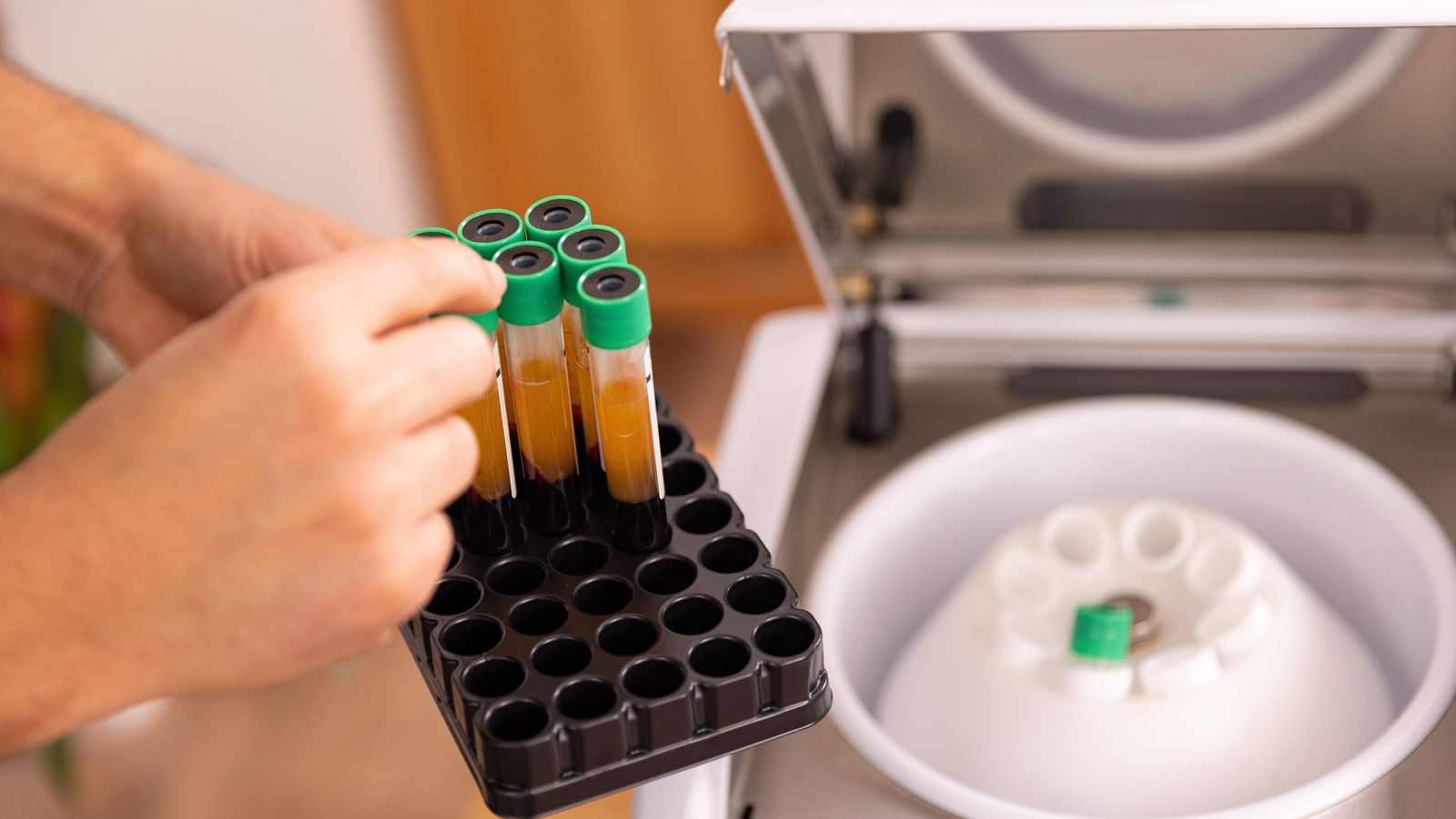A new technique to reprogramme bone marrow cells has been developed, paving the way to simplify the donation process.
Transplants of bone marrow can be used to treat blood cell cancers, as well as cure other blood cell disorders, but experts say there are challenges to finding appropriate donors.
However, Laura Breda and her colleagues at the Children’s Hospital of Philadelphia in the US, has revealed a new strategy to deliver mRNA straight into stem cells, using a technique similar to that developed with the COVID-19 vaccines.
The mRNA then edits the genetic defects and helps regrow the bone marrow with healthy cells.
They demonstrated the technology in the bone marrow of living mice, as well as haematopoietic stem cells in humans taken from four patients with sickle cell disorder.
Be the first to get Breaking News
Install the Sky News app for free
The findings have been published in the Science journal, which say in the human sample, the team corrected the genetic defect, suggesting there could be a route for gene-editing of bone marrow without the need for the usual transplantation process.
That includes hunting for a suitable bone marrow match and re-engineering the patient’s own cells outside the body.
Food insecurity leads to unhealthy eating and contributes to obesity, MPs’ report finds
UK risks losing its position as ‘global leader’ as vaccine uptake rates decline
Researchers identify eight habits that could help you live more than 20 years longer
The authors write: “These findings may potentially transform gene therapy in two ways.
“First, the cure of monogenic disorders, including non-malignant haematopoietic disorders (haemoglobinopathies, congenital anaemias or thrombocytopenias, and immunodeficiencies) and non-haematopoietic diseases (cystic fibrosis, metabolic disorders, and myopathies) with a simple intravenous infusion of targeted genetic medicines.
“Second, effecting cell type-specific state changes in vivo with minimal risk could allow previously impossible manipulations of physiology.
Please use Chrome browser for a more accessible video player
Read more:
Scientists create synthetic human embryos using stem cells in major breakthrough
Charities call for more black and Asian people to donate stem cells
“Such delivery systems may help translate the promise of decades of concerted genetic and biomedical research to treat a wide array of human diseases.”
However, in response, gene therapists Samuele Ferrari and Luigi Naldini warn it could be “a long, winding mountain road” to using the technique in humans, and that more studies will be needed to assess safety and effectiveness.







